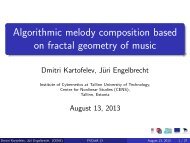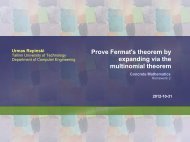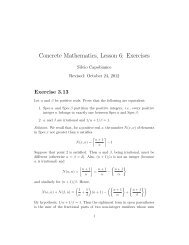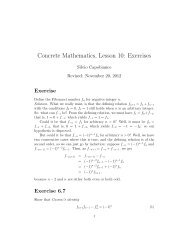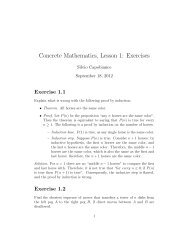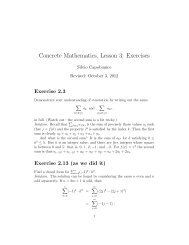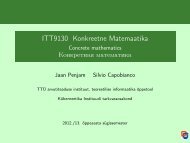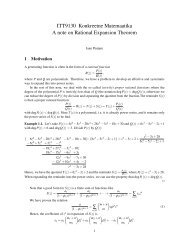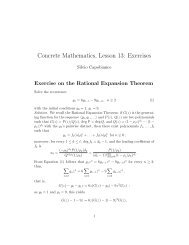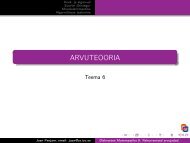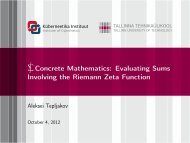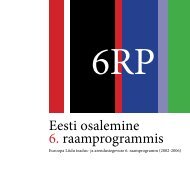Visiting Researcher's Guide - EURAXESS Estonia
Visiting Researcher's Guide - EURAXESS Estonia
Visiting Researcher's Guide - EURAXESS Estonia
You also want an ePaper? Increase the reach of your titles
YUMPU automatically turns print PDFs into web optimized ePapers that Google loves.
9.4 Religion and churches<br />
LEISURE AND PLEASURE<br />
<strong>Estonia</strong>ns are fond of talking about their Lutheran work habits. This is<br />
largely the only religion-related topic that reaches your ear. In predominantly<br />
Protestant (since the early 16th century) <strong>Estonia</strong>, the church is separated<br />
from the state, and religious topics only emerge at Christmas and Easter.<br />
Confessional belonging is strictly everybody’s own business. Representatives<br />
of the state, however, consider it necessary to appear in church from time<br />
to time, and the church diligently voices opinions on social matters. The<br />
most heated religious debates focus on whether or not religion should be a<br />
compulsory subject in the school curriculum.<br />
The mass Christianisation of <strong>Estonia</strong>ns began in the 13 th century, although<br />
the previous pagan beliefs persisted until the 17 th century. Alongside Christian<br />
holidays there are also a number of “pagan” traditions alive today; such as<br />
bonfires in May and on Midsummer’s Eve.<br />
The majority of religiously active people belong to the <strong>Estonia</strong>n Evangelical<br />
Lutheran Church or the Orthodox Church. The Orthodox Church in <strong>Estonia</strong><br />
has two separate branches: the Russian-language church subordinated to<br />
Moscow and the <strong>Estonia</strong>n-language church subordinated to Constantinople.<br />
Visitors to Tallinn will immediately notice the Orthodox presence here:<br />
the cathedral from the period of Russification (the end of the 19 th century)<br />
dominates Toompea hill in the Old Town. By Lake Peipsi, the archaic<br />
community of Old Believers has sheltered since the Russian reformation.<br />
The most common time for Sunday services is 10 o’clock, but in some<br />
congregations services begin at 11 or 12. You should contact a congregation<br />
directly if you wish to become a member.<br />
Information on churches in Tallinn can be found at the Tourist web portal<br />
http://www.tourism.tallinn.ee/<br />
Information on churches in Tartu can be found at the Tourist web portal<br />
http://www.visittartu.com/1443/<br />
TAAVI GREPP kERlY IlVEs<br />
89



